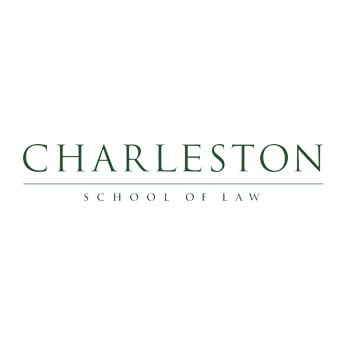
Founded in 2003, the motto of the Charleston School of Law (Charleston Law) is “for the good of the people.” The law school was founded by local judges and lawyers who hoped to establish the first law school in the city in over 150 years. After receiving provisional accreditation in 2006, Charleston Law was fully accredited by the American Bar Association in 2011. Since 2011, Charleston Law has been engaged in a public fight over the school’s ownership which has hurt enrollment. More recently, the law school’s graduates have struggled to pass the South Carolina Bar Exam at a rate sufficient to maintain its accreditation. Having resolved the ownership issues and reinstating a number of faculty members, Charleston Law is driven towards improving its academics program and restoring its original mission to provide public service to the city of Charleston.
Academics
The Juris Doctor program at Charleston Law requires 90 hours of coursework as part of a traditional, three-year program or through a part-time program lasting four years. In their first year of study, students complete four of the traditional core courses of American Legal Education: civil procedure, contracts, property, and torts. All courses last for both semesters. Students also take a two-semester study of legal research, analysis, and writing as well as a course building their academic skills. During their second and third years, all students are required to take nine additional substantive courses including constitutional law and criminal law–the remaining two core courses of the traditional American legal education. Other required courses cover fundamental subjects as well as common bar exam topics. Students also complete an upper-level writing requirement, take an additional skills course, and one course covering legal drafting. Most students at Charleston Law also complete a bar preparation course prior to graduation.
Additional Programs
Charleston Law also leverages its location as an important East Coast port to offer a Master of Law (LL.M) degree in Admiralty and Maritime Law. The program requires 24 hours of coursework designed to be completed in a year. The program leverages the local legal community’s expertise in the field and provides practicing maritime lawyers as mentors for all LL.M students.
After completing two years of study at Charleston Law, students may enroll in a dual degree program with the College of Charleston’s Master of Business Administration Program. Students must complete all requirements of the M.B.A. program. However, students are able to transfer certain of their M.B.A. credits towards their J.D. degree which allows them to complete the programs in less time than pursuing them separately. The dual-degree also provides students with a unique combination of business and law acumen.
Career and Career Placement
Based on the most recent employment outcome data, over 71% of all Charleston Law graduates were employed within 10 months of graduation. However, of those employed, only 82% were employed in long-term, full-time careers. Almost 70% found careers requiring a law license while an additional 17% found careers that preferred a Juris Doctor degree. In terms of career choices, over half of employed graduates chose careers in traditional law firms with small firms with 1 to 10 attorneys accounting for nearly a quarter of all employed graduates. Over 18% of graduates opted for careers in the business sector while 13% chose careers in government or the public interest sector. Almost 12% of graduates successfully secured judicial clerkships in the local and state court system. Most students–nearly 70%–remain in South Carolina to begin their professional careers.
The Charleston School of Law Career Services Office (CSO) provides all students a range of career related services. The core of the CSO is individual career counseling with each students to help students prepare a long-term strategy for career success. The law school does emphasize–true to its founding mission–the need for public service. The CSO administers the school’s requirement that each student complete 50 hours of pro bono service work. The CSO also hosts on-campus interviews each semester and collects resumes to forward to interested employers. Each semester, the CSO presents a wide range of programs that help students prepare for their job search, network, and expand their career focus.
Experiential Learning/Distance Education
Charleston Law requires students to complete three distinct experiential courses covering core legal skills. These courses cover legal skills, legal drafting, and a bar-related skill course. Each course is distinct and requires its own course. Courses vary each semester. Additionally, students may participate in the school’s externship program that places students into external legal offices to practice their legal skills in a real-world legal setting. While students are exposed to the legal profession, they also build their professional network.
Currently, Charleston Law requires residential coursework for all its degree programs.
Student Life
Charleston Law’s large and diverse student body enjoys a supportive community designed to help all students succeed both in and out of the classroom. The Department of Student Affairs supports over 30 student organizations, provides counseling and wellness programming for students and offers a range of services including health, fitness, and financial. Students also benefit from a mentoring program with practicing lawyers in the community.
Located in the heart of downtown Charleston on the city’s famed peninsula between two rivers, the Charleston School of Law is set in one of America’s most unique cities. The School of Law is located in a historic building and is surrounded by the city’s remarkable history from the city market to the many museums that catalog the city’s history. All around the law school are Charleston’s famed restaurants and bars that give the city an international reputation for cuisine. Housing is available throughout the city at a variety of price points.